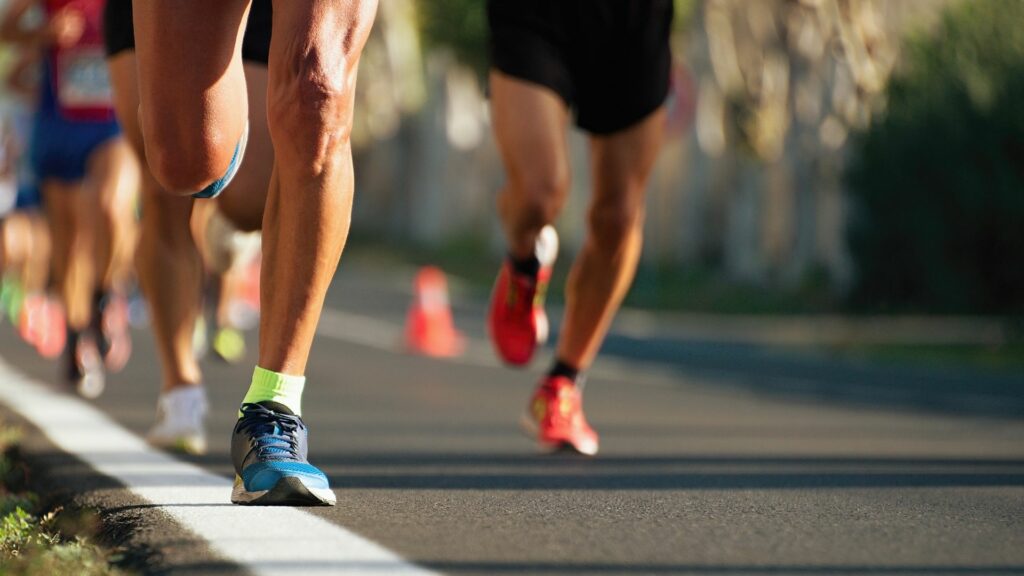What happens to your body when you run a marathon?

Many ambitious runners have one goal: they want to run a marathon at least once in their lives. But everyone should know in advance what to expect. Because regardless of the quality of your training, many things happen to your body when you run a marathon. Not all of them are healthy.
A marathon is actually too long for the body
At the risk of making myself unpopular with many runners, I would like to say something about this: Running a marathon is not particularly healthy for the body. The distance is simply too long for the body. Many scientific studies show that. That’s why you should tackle it with great humility. That means you have to prepare yourself really well for it.
- Beginners and returning runners need at least a year, better still, 18 months of targeted preparation to run a marathon.
- If you are already well trained and can run a half marathon without any problems, three months of preparation will be enough.
The training for a marathon is healthy
The race itself is a Herculean task for the body. On the other hand, serious preparation has many positive effects on the body. The training is suitable for your immune system, and you burn many calories. Your heart learns to work more efficiently, and new blood vessels sprout. This improves the oxygen supply, which benefits all organs of the body. But during the run itself, these things can happen:
The body temperature rising
In a marathon race, the body temperature keeps rising the race from the standard 37 degrees to over 40 degrees. This is like the flu or an infectious disease, but usually not dangerous. However, it is essential to compensate for the loss of fluids in a sensible way. Reasonable because you can’t drink too much liquid. Read more about this here.

Your kidneys can suffer
The strain of running over 42 kilometers can affect your kidneys. Researchers at Yale University have shown that 80 percent of marathon runners experience kidney problems. This is especially true for runners who are not optimally prepared and those who drink too much or too little fluid.
Your legs can hurt
If you push yourself to the limit in a marathon, which is usually unavoidable, you can expect cramps during the run and afterward. This can be avoided if you are very well prepared, but muscle stiffness is inevitable. Slight injuries within the contracting muscles are to blame. The tissue is easily inflamed, sometimes even swollen. You should therefore give your body enough time to recover.
You will probably have a sleepless night
Depending on how nervous you are, you may have trouble falling asleep and staying asleep the night before a marathon. But the night after the run might be a bit restless too. Although you probably feel dog-tired, you can’t find your way to sleep. The stress hormone cortisol is to blame. It remains elevated for many hours after a marathon and doesn’t let you rest.
Maybe you lose a toenail
It depends on the distance and, of course, the footwear. But muscle and tissue damage are not uncommon towards the end of a marathon. The feet, in particular, can suffer, especially if a course is sloping towards the end. Small micro-traumas can occur, resulting in you losing a toenail. Again, the better the preparation, the lower the risk. But, as I said, the running shoe also plays an important role.
You burn a lot of calories
When you run a marathon, the calorie consumption is between 600 and 800 calories per hour. But our body can store 500 grams of glycogen. That’s about 2000 calories available for immediate mobilization. Unfortunately, these are used up after 30 kilometers, and many marathon runners know what happens then: Performance decreases rapidly. Electrolytes can help, but only if you have experience with them. Otherwise, you will get stomach cramps. Tip: During the preparation, you should test which measures help you best.